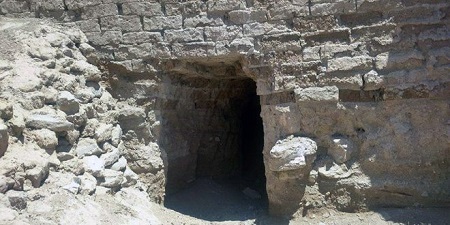The Directorate-General of Antiquities and Museums has declared that the Tel Taban site in Hasaka province has been damaged because of attacks carried out by armed terrorist groups there.
It said in a statement released Thursday that terrorists dug three tunnels in the western and northern sides of the hill [Tel Taban] causing big damages to the important archaeological levels of the hill, which is located south of the city of Hasaka on the eastern bank of al-Basel Lake dam.
“The total length of the tunnels is 20 meters,” the statement said, pointing out that the DGAM’s Director –General Maamoun Abdulkarim accompanied by the head of the Department of Antiquities in Hasaka Khalid Ohmo and a number of technicians visited the site.
The statement, in addition, indicated that Japanese mission had worked in the site between 1997-1999 and then between 2005-2006. “The mission discovered important archaeological levels dating back to the era of Uruk broker, other levels dating back to the ancient Babylonian period- about the seventh century BC- important building dating back to the immediate period of Assyrian- around the twelfth century BC- and some cuneiform tablets.”
 Another mission from the Los Angeles University headed by Giorgio Puccilatyalso worked in the same site in 1984, according to the DGAM.
Another mission from the Los Angeles University headed by Giorgio Puccilatyalso worked in the same site in 1984, according to the DGAM.
The past four years of war on Syria have taken a toll- upon a people and a nation, as well as upon an inordinately rich cultural heritage that has come under attack, the U.S. professor Franklin Lamb said in the introduction of his book published in the early of 2015 under the title ‘Syria’s Endangered Heritage’ .
The book’s author sees that it is the duty of every person of good will to offer assistance and support for efforts being undertaken in Syria and elsewhere to preserve and protect the global cultural heritage of humanity.
He quoted the UNESCO Director Irina Bokova as saying: “Damage to cultural heritage is a blow against the identity and history of the Syrian people- It is a blow against the universal heritage of humanity.”
Basma Qaddour

